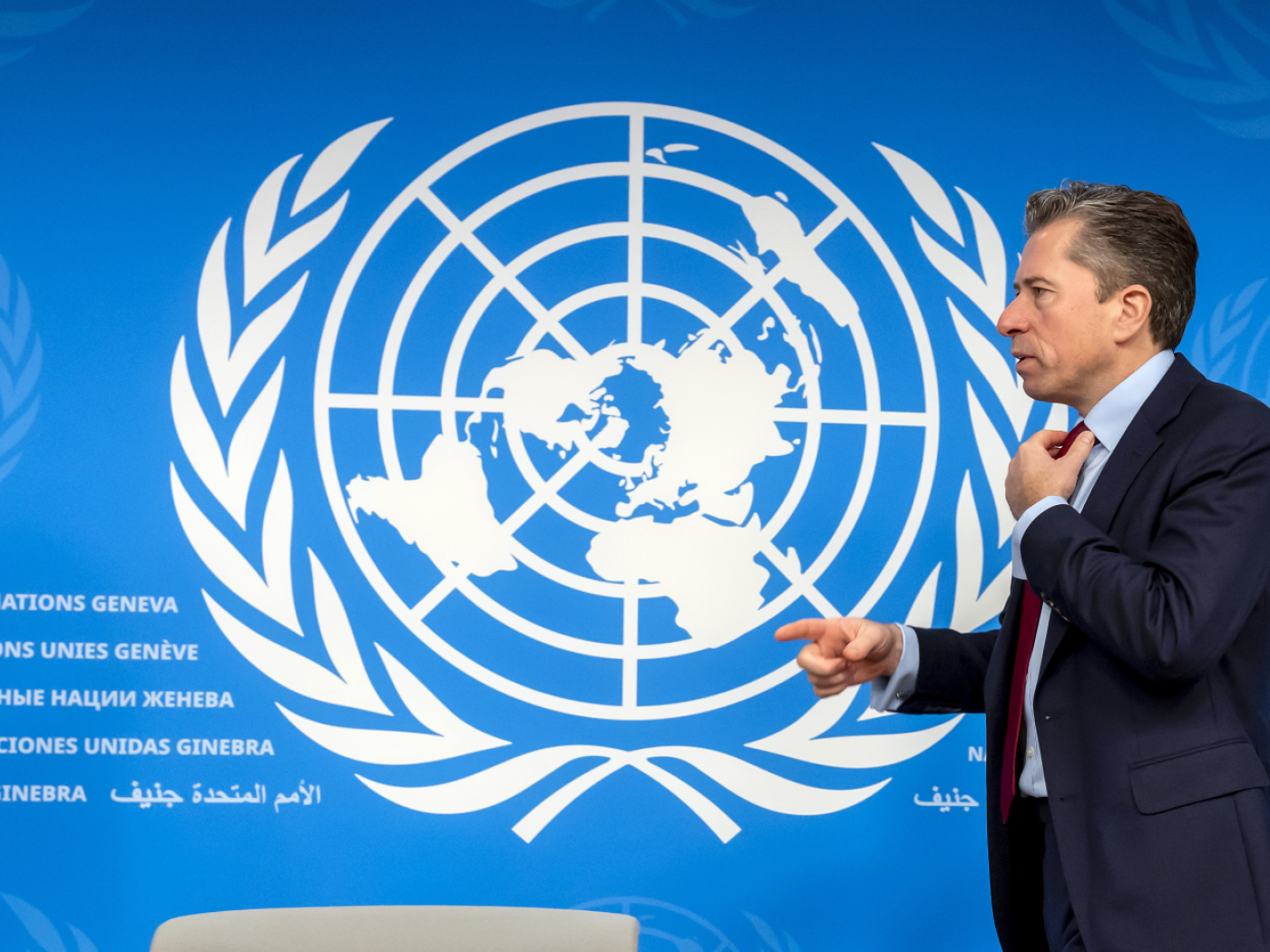
UN appeals for more funds to assist 305 million people in need

The United Nations Office for the Coordination of Humanitarian Affairs (OCHA) estimates that around 305 million people will need aid in 2025. This represents an increase of five million people compared to the previous year.
+Get the most important news from Switzerland in your inbox
The UN is seeking around $47.4 billion (CHF41.7 billion) for 2025 to help people fleeing conflict and battling starvation. Despite the growing number of crises and conflicts, OCHA is unable to increase its planned aid activities for 2025. So far, only just over 40% of requested funds have been collected from donors this year.
While some countries need more aid, six no longer need any money at all from the global emergency aid plan, Geneva-based OCHA said on Wednesday.
+ Proposed Swiss cuts to international aid mean less for the needy
“In a world on fire, the most vulnerable are paying the highest price: children, women, people with disabilities and the poor,” said the new UN Emergency Relief Coordinator Tom Fletcher. “We need a new level of global solidarity.”
Not enough funds for Syria, Yemen and Chad
According to OCHA, food aid for Syria was cut this year due to a lack of funds. In Yemen, which has observed many cholera outbreaks, drinking water and sanitation is lacking, and in Chad not enough could be done to combat hunger. A lack of donations means that only 116 of the planned 180 million people can be reached.
+ War in Ukraine erodes European support for humanitarian disarmament
Among the humanitarian priorities for 2025, OCHA sees the greatest needs in Syria and neighbouring countries, as well as in Sudan. The Palestinian territories occupied by Israel, Ukraine and Myanmar will also remain the biggest crises for OCHA.
Translated from French by DeepL/sb
This news story has been written and carefully fact-checked by an external editorial team. At SWI swissinfo.ch we select the most relevant news for an international audience and use automatic translation tools such as DeepL to translate it into English. Providing you with automatically translated news gives us the time to write more in-depth articles.
If you want to know more about how we work, have a look here, if you want to learn more about how we use technology, click here, and if you have feedback on this news story please write to english@swissinfo.ch.

In compliance with the JTI standards
More: SWI swissinfo.ch certified by the Journalism Trust Initiative



























You can find an overview of ongoing debates with our journalists here . Please join us!
If you want to start a conversation about a topic raised in this article or want to report factual errors, email us at english@swissinfo.ch.